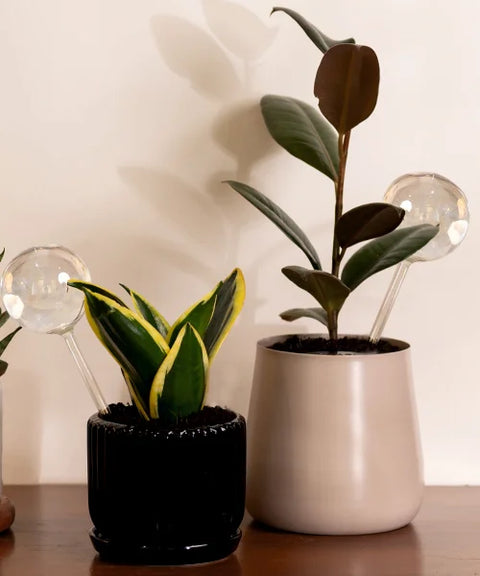About
Philodendron Ceylon plant
A stunning addition to any indoor space, the Philodendron Ceylon (Golden) features vibrant golden-yellow leaves that add a splash of color and tropical flair to your home. This easy-care plant thrives in various conditions, making it a favorite among plant enthusiasts.
Origin
Native to the tropical rainforests of Central and South America.
Light
Prefers bright indirect light. It can tolerate low light but may lose some of its vibrant color. Avoid direct sunlight to prevent leaf burn.

Water
Water when the top inch of soil feels dry. It enjoys evenly moist soil but is susceptible to root rot if overwatered. Adjust frequency based on light exposure and indoor climate.
Humidity
Thrives in average household humidity but appreciates occasional misting to keep the leaves healthy and vibrant
The Philodendron Ceylon (Golden) is like the artist of the plant world, painting your space with its stunning golden hues and bringing joy to any room
Placement
The Philodendron Ceylon (Golden) brings a lively touch to your living space. Here’s where to place it
Adds a burst of color and improves air quality. Position it near a window with indirect light for optimal growth.
Enhances focus and reduces stress. Its vibrant leaves can brighten your workspace.
Promotes a restful sleep environment by purifying the air.
Frequently Asked Questions
The ideal temperature is between 60°F to 80°F (16°C to 27°C). It prefers warm stable temperatures.
Water when the top inch of soil feels dry typically every 1-2 weeks. Adjust the frequency based on light and indoor climate.
It prefers bright indirect light but can tolerate low light. Avoid direct sunlight to prevent leaf burn.
Yellowing leaves often indicate overwatering. Improve drainage and reduce watering.
This usually signifies low humidity or underwatering. Increase humidity and ensure consistent watering.
Keep the plant clean by wiping the leaves and inspecting for pests. Use insecticidal soap if necessary.
Yellow leaves can indicate overwatering or poor drainage. Allow the soil to dry out between waterings.
















 Apply Discount at Checkout
Apply Discount at Checkout 

























































































